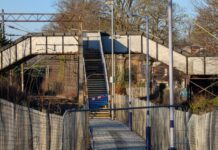
MORE than two years on from the Grenfell Tower tragedy, cladding issues are continuing to cause concern for housebuilders.
Andrew Leslie, an associate in Gillespie Macandrew’s housebuilder team, told Project Scotland that some financial lenders have refused to offer funds relative to properties where any cladding has been applied to a building unless it can be certified as safe by a fire inspector. If this cannot be achieved, then surveyors acting for lenders have returned a nil-valuation of such properties.
Mr Leslie said, “While housebuilders and their solicitors will have dealt with a large number of enquiries about cladding on their properties in the months after the fire, generally speaking such enquiries have significantly reduced over the last twelve months. However, the problem has once again arisen, this time it has been prompted by financial institutions.”
Leslie warned that as well as causing anxiety to individuals who find themselves owners of properties that suddenly are of no value and incapable of being sold, the prospect of nil valuations could have a “severe effect” on the housing supply chain in Scotland.
“Housebuilders will often be dependent on their clients being able to sell their properties to enable their purchase of a newly constructed home; delays or cancellations caused by nil valuations could result in cash-flow and planning issues for builders,” he explained. “Builders and their solicitors will also have to exercise extreme caution when it comes to part-exchange transactions. Since there is no lender involvement when a builder purchases a property in part-exchange, it may not be apparent from the title examination alone that an issue exists. In order to avoid situations where a builder is contractually obliged to acquire a property in part-exchange that they cannot sell on to a third party, government advice notes should be considered, with specialist input and an audit trail sought to show that cladding systems complied with regulations at the time of construction. This will ensure that there is adequate supporting information to satisfy a lender, or for the builder to make a decisions to walk away from the transaction before missives are concluded.”
The issue is now being discussed with Homes for Scotland, the Scottish Government and RICS. A new external wall fire review process, applicable to both new-build and second-hand high-rise blocks, is to be introduced to offer comfort to lenders.
Leslie added, “A fire safety assessment will be conducted by a qualified professional and if cladding is found to be non-combustible, a certificate will be issued to confirm it, allowing a full valuation to be produced. If, however, the cladding is found to be combustible, then a further inspection must be carried out to assess whether remedial works are required.
“While this will provide the answers required to lenders, it could lead to delays in the supply chain. Builders, solicitors and purchasers should ensure they are up to speed to allow any issues with properties to be identified and dealt with at an early stage in transactions. This will help avoid commercial issues for housebuilders and potential anxiety for buyers during what is often a stressful time.”








